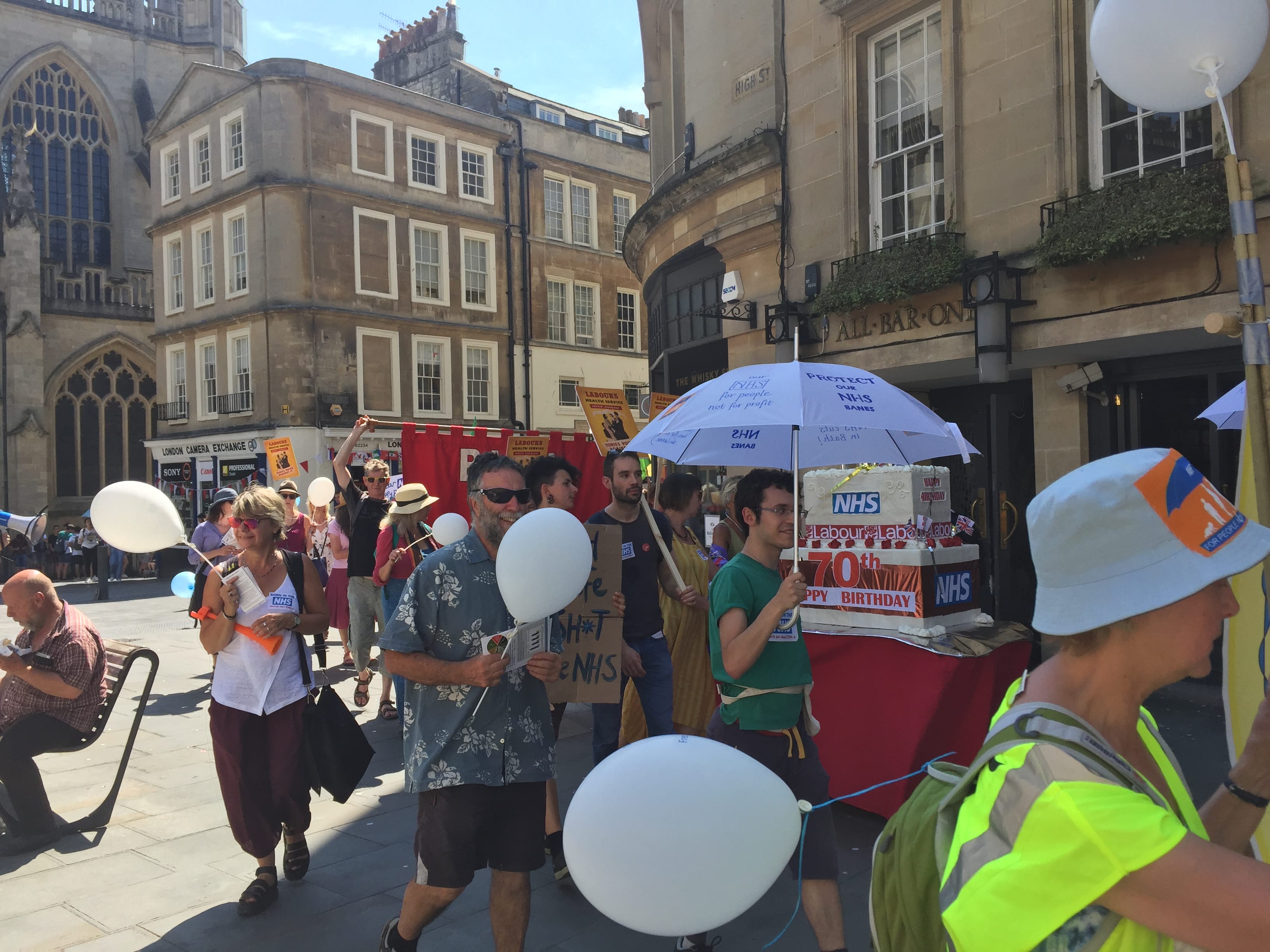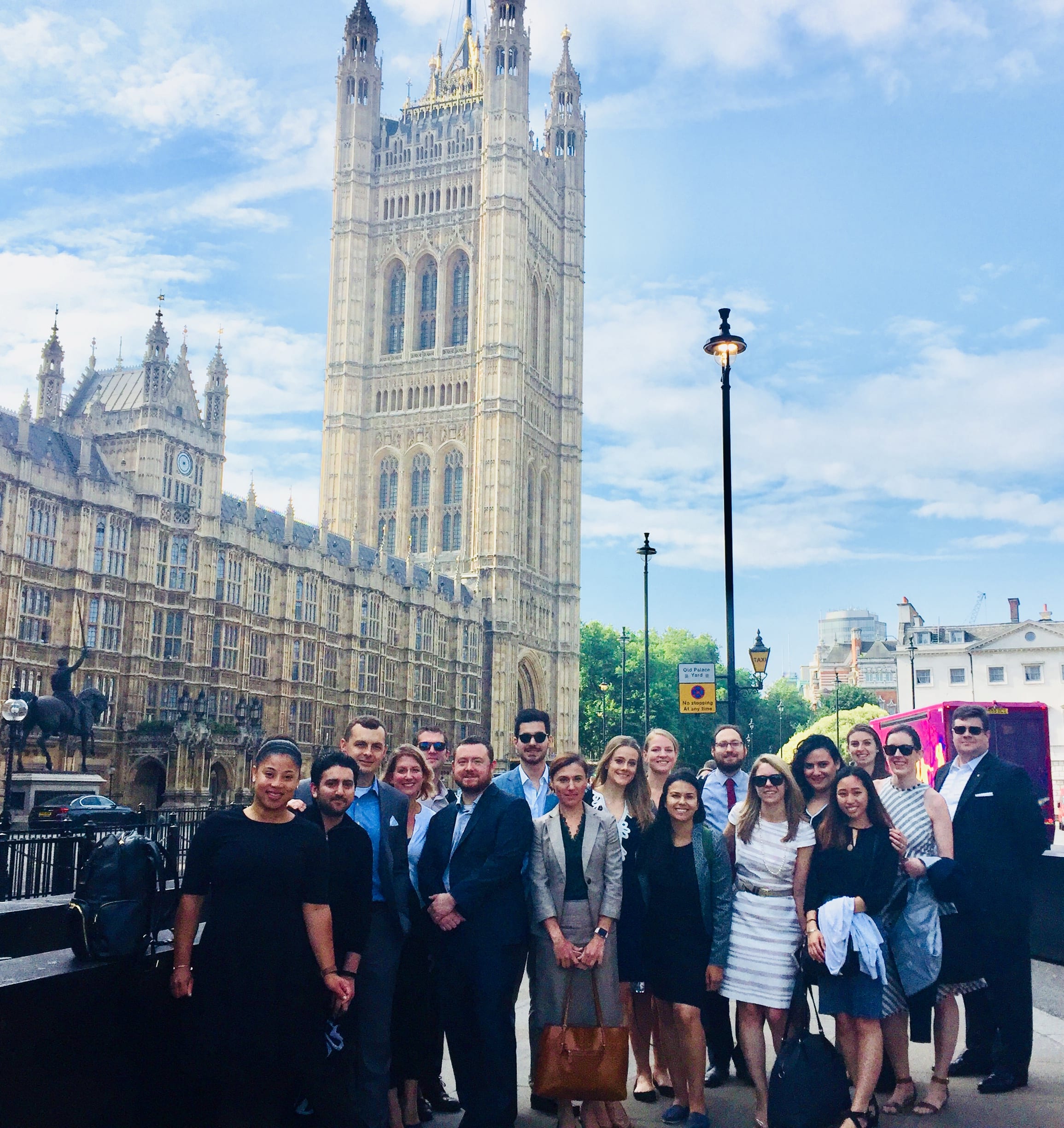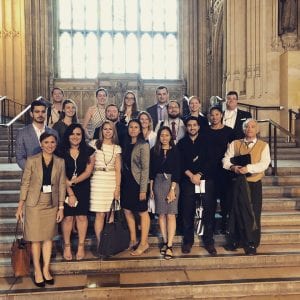Reflection by Alanna Williamson, MPH Class of 2019
As a health policy student with a strong interest in health care payment and delivery system reforms and cross-sector innovations designed to improve access to and quality of care while reducing costs, this course on Public Private Partnerships (PPPs) has been an invaluable addition to my graduate coursework. The perspectives shared by my classmates from the business and public policy schools were complementary to my own understanding of social funding opportunities and challenges from a public health policy lens. As one would expect, in the school of public health, my courses have focused on policy development, implementation and evaluation to achieve targeted public health outcomes. However, we do not go into as much depth about the pros and cons of various financing or organizational arrangements for social programs that have a direct impact on public health, including health care, housing, transportation, and public safety. Financing and organizational frameworks that achieve better “value for money” are of great interest to policymakers, funders, and private sector stakeholders, so it was extremely helpful to deepen my understanding of the strengths and weaknesses of public, private, and PPP organizational structures and financing arrangements from both a business and policy perspective.
Prior to visiting London, I was surprised to learn that I really had no idea what a PPP is. This term is used in the US constantly, but it is used to describe any project or program with both private and public-sector involvement. The benefit of these relationships seemed to be simply that public and private sector interests could be aligned to achieve a common goal. Through this course, I have learned that PPPs leverage private sector financing and efficiency to promote a public objective. The state can shift risk to the private sector and pay for performance based on predefined outcomes without investing a lot of up-front capital. PPPs can inject competition into a market to generate innovation and efficiency, but there are not as effective if the public sector subsidizes the program because this dilutes the incentives for private sector efficiency and competition.
I also learned that PPPs can be effective at the national, state or local level. It was interesting to hear about the UK trend toward devolution, as this mirrors the strong desire for states’ rights and autonomy in the US. In the health care sector, some of the most interesting and innovative value based payment arrangements are developing most rapidly at the state level in places like New York, California, Washington, Massachusetts and Montana. These states have the autonomy to incentivize health and wellness outcomes measures through innovative payment arrangements and delivery system reforms within the broad constraints of federal Medicaid policy. It seems that the UK has a similar urge to pass the authority to test innovative payment arrangements to more local levels of government through block grants or bundled payments in order to achieve better value for money. Since states in the US must balance their annual budgets, there may be more incentive to test PPPs at the state level in the US, particularly in business-friendly states with social problems that could be resolved in partnership with local private sector companies.


During our course in the US, we focused a lot on the opportunities of the PPP model to enhance public sector program quality and contain costs. However, there are very real downsides to this model that were made apparent on our visit to the UK. First, by fully shifting risk to the private sector, there is a real chance that operations will fail. We heard in class about a handful of examples, but in London, it did seem like this was a common occurrence. PPP contracts are written to ensure that a public service is delivered on time and on budget or the additional delay or costs are not paid for by the state. However, the failure of a private sector firm to deliver the public services promised, such as timely operation of commuter trains, ambulances, or defense, causes significant problems to the public and overall society. Simply not paying for the service if it is not delivered when needed does not seem to account for the negative effects that the disruption has on public safety, the economy, and public opinion of the privately operated public service.
While we did touch on this topic before the UK portion of the course, this point was driven home by hearing outrage from locals about the train system and my own experience of a train being cancelled. While I was refunded the full amount of my fare, this cancellation caused me to wait in the hot sun for a few hours and miss a portion of the London program. While I appreciated the financial compensation, what I really would have preferred is a reliable train that got me to London at the time scheduled. This experience led me to believe that the trains in the UK are unreliable overall, and I can understand the frustration that people would have if they rely on trains regularly. With so many failed P3s across sectors in recent years, I understood the public backlash against this model much more after being in the UK, as well as the recent reframing and focusing on infrastructure projects rather than services.
Finally, because of my interest in health policy, I spoke to many of the UK representatives and locals I met about the National Health Service (NHS). There was broad consensus from people across the political and economic spectrum that there is a need for significant reform related to financing the healthcare system to ensure sustainability and quality going forward. Some felt that increasing general taxes was the only way to go. Others focused on taxing corporations or closing tax loopholes, targeting firms like Amazon, to increase funds for the health system. A group of labor party protesters walked through the streets of Bath wishing happy birthday to the NHS and distributing pamphlets about the benefits of the system. They compared the amount of taxes being contributed to the UK health system per capita to German health care funding, stating that the UK was contributing much less and that this is the primary reason why quality is falling short. Others focused on immigration, stating that the NHS does not have the capacity to take care of all the new immigrants, and that this was the heart of the issue for them. One nurse I spoke with was convinced that the NHS would have to be dissolved, and was quite sad about it, but to her, this seemed inevitable. She said that she worked long hours and that her clinic was understaffed, but the main problem with capacity that she cited was that physicians were not compensated enough. It was interesting to hear the perspectives about funding and sustaining the national health care system in the UK, as many of the issues raised mirror the political and ideological stances of the US. However, in the UK, there seemed to be a stronger emphasis on fairness and rationality that is often missing from heated, emotional debates in the US. The concept of fairness seemed to pervade most policy discussions and it seemed like policymakers and lay people in the UK were grappling with how to solve these complex problems in a way that was fair to all citizens, including people of different income statuses and regions. Policy discussions also tended to be more forward-thinking, taking into account potential impacts on future generations. This standard for policy decision-making often seems lacking in the US where we are so often short-sighted and partisan in our policies.
In conclusion, the US and the UK are grappling with strikingly similar problems related to rising health care costs and constrained state budgets. It is useful to look to the UK for lessons learned and best practices related to PPP and other innovative funding models to improve quality and generate capital for public programs.







